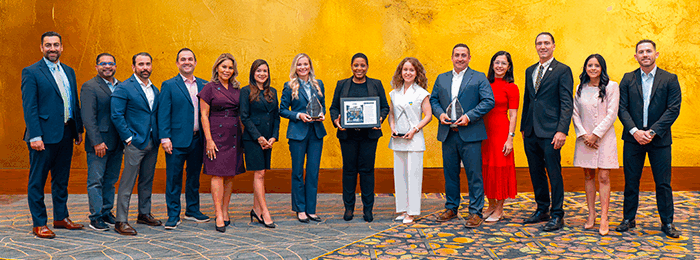Featured
A new era in financial crime prevention partnerships
Financial crime transcends national borders, industries and financial institutions, which is why collaborative partnerships are essential to detect, deter and disrupt serious and organized crime.
Public-private partnerships in SAR optimization
This is the third article in a three-part series on suspicious activity report (SAR) innovation, optimization and partnership to foster efficiency and effectiveness in the fight against financial crime.
From the Editor
“And knowing is half the battle”
A few years ago, my mother-in-law was cleaning her basement when she called my husband to ask him if he still wanted his childhood G.I. Joe figures. His mom, a saver, had meticulously stored some of my husband’s favorite toys from his childhood so he could pass them on to his posterity.
Inside this Edition
- AFC Challenges
- Compliance
- Europe Express
- Fraud
- Know Your Chapter
- Meet the ACAMS Staff
- Member Spotlights
- Practical Solutions
- Sanctions
- Tech Scope
- Understanding AI
The three Cs of financial crime: Collusion, conspiracy, complicity
Collusion, conspiracy and complicity are three words that are often used interchangeably to characterize dishonest and deceitful behavior perpetrated by individuals in relation to financial crime.
The intersection of KYC and fraud prevention
For many years, know your customer (KYC) and related due diligence measures and fraud prevention processes have been treated as separate functions.
The Bank Secrecy Act: The pros and cons
There is a unique pessimism surrounding the Bank Secrecy Act among its foot soldiers. With the publishing of the recent “interim staff report” from the U.S. House Committee on the Judiciary, there seem to be more dark clouds rolling in over the industry.
Financial inclusion and AML compliance: Finding the right balance
“Striving to better, oft we mar what’s well.” These words, spoken by the Duke of Albany in Shakespeare’s King Lear (Act 1, Scene 4), still resonate in the world of anti-money laundering (AML) compliance in 2025, nearly 420 years after the play’s first performance.
Public-private partnerships in SAR optimization
This is the third article in a three-part series on suspicious activity report (SAR) innovation, optimization and partnership to foster efficiency and effectiveness in the fight against financial crime.
The effects of recent AML regulation in the EU and the U.K.
Anti-money laundering (AML) regulations in the European Union (EU) and the United Kingdom (U.K.) have undergone significant changes in recent years, reflecting the emergence of new technologies, evolving financial crime risks, the expansion of digital assets and the increasing importance of data transparency.
The money laundering bus driver
In November 2021, the U.S. Postal Service delivered a card to the district attorney in Pickens County, Alabama. The card did not contain a return address, and the author never left their name. The card claimed that a “million dollar plus scam” existed in the county, which included stolen identities, money laundering and cryptocurrency. Among the accused was a man named Antonio Lanier.
The escalating issue of elder financial exploitation
Elder financial exploitation (EFE) is a pressing and growing concern in the U.S., posing a threat to the financial security and well-being of older adults. EFE involves the illegal or improper use of an elder’s funds, property or assets, often leading to devastating financial and emotional consequences. As the elderly population grows, so does the prevalence of such exploitation.
ACAMS Pittsburgh Chapter: Joseph (Joe) Stephenson: Fighting financial crime through education and collaboration
Joe Stephenson, CAMS, vice president and Financial Intelligence Group senior coordinator at S&T Bank, spoke with the ACAMS Pittsburgh Chapter Board about his career, recent developments in anti-financial crime and other related topics.
Michelle Rance: Promoting partnership and collaboration
Michelle Rance is the senior manager for instructional design at ACAMS, where she leads a group that partners with cross-functional teams and subject-matter experts to develop engaging compliance learning experiences, including the Certified Anti-Money Laundering Specialist certification.
Arun Ajayagosh, CAMS, CGSS—Dubai, UAE
Arun Ajayagosh is a highly accomplished anti-financial crime professional with over 14 years of experience in anti-money laundering, counter-terrorist financing and financial crime investigations.
Scott McNeil, CAMS—Florida, USA
Scott McNeil is a special agent with Homeland Security Investigations with over 15 years of federal law enforcement experience investigating money laundering, cyber frauds and various financial crimes.
Daniella Trinchet—Florida, USA
Daniella Trinchet is a seasoned compliance professional with over 15 years of expertise in the financial services industry, specializing in anti-money laundering, sanctions compliance and regulatory risk management.
A new era in financial crime prevention partnerships
Financial crime transcends national borders, industries and financial institutions, which is why collaborative partnerships are essential to detect, deter and disrupt serious and organized crime.
Steps FIs can take to improve working with LE
The key to any good working relationship is communication and cooperation, especially when it comes to the relationship between law enforcement (LE) and financial institutions (FIs).
Kleptocracy and sanctions: Keeping the proper focus
Kleptocracy is the misappropriation―or, to put it plainly, the stealing―of a country’s wealth and resources from its citizens by corrupt government officials.
AI: Transforming model validation in sanctions screening
Artificial intelligence (AI) and machine learning are positively impacting sanctions screening. More organizations are benefiting from reducing false positives, improving match accuracy and, overall, making screening engines more efficient.
Meme coin mania and mayhem: Navigating the blind spots
Sentiment-based virtual currencies, colloquially known as “meme coins,” are virtual currencies inspired by social and cultural trends. Once regarded as momentary internet comedy, meme coins attracted both retail and institutional investors and quickly captured a significant share of the cryptocurrency market.
AI-driven AML strategies: Compliance, risk mitigation and regulatory best practices
Recent case studies, including high-profile artificial intelligence (AI)-driven fraud incidents in Hong Kong and India, highlight the growing threat of AI-enabled financial crime, particularly in the Asia-Pacific region.







